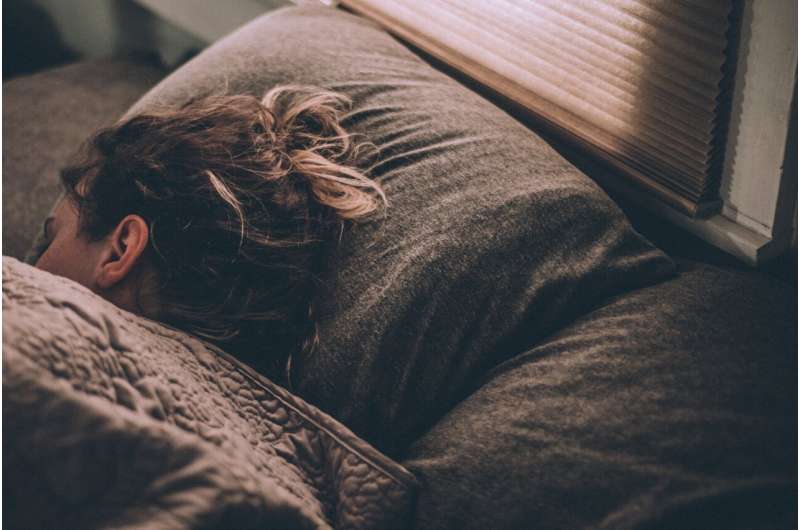
Teenagers who took longer to fall asleep before the COVID-19 pandemic could be more likely to report higher levels of pandemic-related worry now, a study from USC Australia’s Thompson Institute has found.
Ph.D. candidate Daniel Jamieson, in research supervised by Professor Daniel Hermens and published in the Journal of Adolescence, tracked sleep and worry patterns of young people aged between 12 and 18 as part of USC’s Longitudinal Adolescent Brain Study (LABS) that began in 2018.
The study is assessing the physical and emotional brain development of participating adolescents every four months over a five-year period, using brain scans and questionnaires.
Professor Hermens said the inclusion of a worry and impact questionnaire as part of the study meant the researchers could compare data collected before and after the pandemic began.
“We found that adolescents who had problems falling asleep prior to the pandemic were now significantly more likely to have greater worries about COVID-19—from concerns about the health of their own families to their own futures,” he said.
“This suggests we should pay more attention if teenagers are lying in bed for a long time trying to get to sleep, as they are more likely to report worrying about future upsets.
“We know that therapy and mindfulness training can help with sleep and anxiety, so findings like this let us know the early signs we can look out for to find young people the support they need.”
Brain scans conducted at each time point allowed the researchers to compare the structural integrity of white matter, which provides connections between regions of the brain, with verbal reports from participants.
“Connectivity between areas of the brain can be good or bad, depending on which areas are being connected,” Professor Hermens said.
“We found that connectivity between specific brain regions was related to worrying and going over in the mind about COVID, so it could provide an indicator of how someone might respond to stress.”
Adolescent participants also reported poorer sleep quality during the pandemic, despite the opportunity for more sleep during lockdown.
“Sleep quality and prioritizing consistent sleep patterns particularly during future upheavals is going to be important going forward,” he said.
Professor Hermens said that because the longitudinal study began before the advent of COVID-19, LABS was in a unique position to report on the impacts of the pandemic on adolescent mental health and brain development.
Source: Read Full Article
